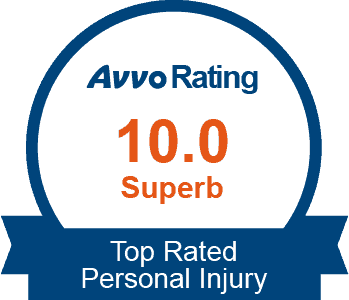Get The Assistance You Need TODAY From Neblett, Beard & Arsenault's Top Social Security Disability Attorneys
Your Trusted Law Firm For Over 40 YearsGet The Assistance You Need TODAY From Neblett, Beard & Arsenault’s Top Social Security Disability Attorneys
Experienced Social Security Disability Attorneys
If you need assistance with a Social Security Disability (SSD) claim, take the first step to protect your legal rights and contact the SSD attorneys at Neblett, Beard & Arsenault. You only have a limited time to file an appeal, so you must act quickly. Call (318) 561-2500 today or submit an online request below.
How Do I File for Social Security Disability Benefits?
Our Social Security Disability attorneys understand the laws pertaining to obtaining SSD benefits. Watch the video below or contact our law firm today. Ask to speak with Attorney Barbara Mixon. The call is free, the consultation is free, and we have helped thousands of clients over the last 40 plus years with their injury and social security disability claim needs.
Social Security Disability Eligibility

Experienced Social Security Disability Attorneys. Call 318-561-2500 today!
If you worked prior to your disability and paid Social Security taxes, then you are typically considered “covered” by Social Security, and Social Security Disability Insurance (SSDI) is the disability benefit you would likely be filing a claim to receive. In order to be considered eligible for SSDI, you must fall into one of the three categories:
- A disabled worker under 65 who is covered by Social Security.
- A person disabled since childhood who is a dependent of either a deceased parent covered by Social Security, or a living parent or parent entitled to Social Security Disability.
- A disabled widow or widower aged 50-60 whose deceased spouse was covered under Social Security.
In order to meet the definition of “disabled,” the Social Security Administration (SSA) requires that you must be completely disabled – meaning your disability must have lasted or be expected to last at least one year or your disability must be expected to end in your death. The disability may be physical, mental or a combination – but it must be proven through medical documentation.
If you are completely disabled and you file an application for benefits, you might expect that your claim will be accepted right away. However, the truth is that many perfectly reasonable benefits claims are rejected initially. The SSA does not award disability quickly or easily, and often claims are denied because of lack of proper evidence or documentation. If your claim is denied, you can appeal the decision, but you have a limited time in which to file an appeal. An attorney can provide legal representation and advice during the appeals process – both of which greatly improve your chances of a successful claim.
If you believe you are entitled to Social Security benefits, if you have questions about your Social Security Disability claim, or if your claim has been denied, the SSD lawyers at Neblett, Beard & Arsenault can help. We’ll review your claim carefully to determine what documentation may be missing, and we’ll prepare your case for appeal. Results are how we measure success – we’ve built a strong reputation both in and out of the courtroom, and we’ll put our experience and dedication to work on your behalf.
Can I Work And Still Collect Social Security Disability Benefits?
Why do I need an attorney for Social Security Disability?
Answer: One federal government study found that individuals who were represented had a nearly triple approval rate versus those who were not represented. https://www.gao.gov/products/gao-18-37.[1] Social Security Disability law is complex. While the Claimant must submit the initial application, having an attorney help you navigate the bureaucratic process, particularly with appeals, is of great benefit. If your case is not approved at the initial application or reconsideration stages, having an attorney represent you at the hearing with the Judge is particularly important. An attorney is familiar with the procedural rules and substantive law to help increase your odds of success. An attorney can submit a letter brief before your hearing, emphasizing the medical and legal arguments. Often, an attorney can make an opening and closing argument at your hearing. Almost every hearing involves one or more experts, usually a vocational expert. An experienced attorney can effectively cross-examine this expert. Our firm has decades of experience and has assisted thousands of claimants. We do not get paid unless and until you get paid.
[1] This statistic is for all represented claimants, not just claimants represented by an attorney.
How do I qualify as being disabled for Social Security disability?
Answer: Social Security disability is not usually determined by a particular diagnosis or diagnoses. Rather, Social Security disability means that the totality of your medical problems prevents you from performing what is called “Sustained Gainful Activity” or SGA. Also, these medical problems must persist for at least twelve continuous months. Social Security disability is not for short term medical problems. Additionally, the rules vary based on age. Persons less than 50 years of age are considered younger persons for Social Security, so getting approved under age 50 is more difficult. The rules ease slightly at age 50 and again at age 55.
Is there a list of medical impairments that Social Security considers disabling?
Answer: Social Security provides a “listing of impairments” which identifies the major types of impairments that can potentially be approved for benefits. This list is not exclusive to just these impairments. Any condition or illness, if severe enough, could potentially qualify for disability benefits. See more at: https://www.ssa.gov/disability/professionals/bluebook/AdultListings.htm.
I have never worked before. If I’m disabled, can I still receive benefits?
Answer: Yes. Even if you have never worked, very little, or briefly, you may qualify for Supplemental Security Insurance (SSI) benefits, provided you do not exceed the SSA’s limit in unearned assets and income.
How much is this going to cost me?
Answer: You pay nothing unless we win. For the most part, our fees are contingent upon getting you approved for Social Security Disability. If you are approved, but receive no back pay, there is no charge for fees or expenses.
If you are approved for back pay, our fee is set by Social Security and is withheld by Social Security from your back pay. Social Security then pays this fee directly to your attorney. That amount is currently 25% of your back pay subject to a cap set by Social Security and periodically adjusted. The date you are approved for benefits is what controls the fee cap. Also, if you are approved for back pay and we incur expenses on your case—most often these are medical records Social Security failed to obtain—you will need to reimburse us for those expenses.
The above does not apply to Cessation of Benefits cases, where a person has been receiving SSDI or SSI benefits, but Social Security has concluded that you were no longer eligible. Cessation cases require an upfront fee paid by the claimant.
When will I begin getting money?
Answer: As of 2024, Social Security Administration’s staffing levels are the lowest they have been in 27 years. While the hiring freeze at Social Security was recently lifted, SSA has been forced to review more and more applications with less staff. As such, the initial application typically takes at least several months. In 2023, the average processing time was 213 days—for just this first step. If your case is denied at initial application, the next step is what is called a Reconsideration. That process usually takes 2-3 months. If the Reconsideration is unsuccessful, the next step is a hearing with the Social Security Administrative Law Judge. The entire process from initial denial to appearing at hearing can last a year or longer. As such, it is not usual for it to take as long as two years to get a decision from the Social Security judge. If the hearing with the Social Security judge is not favorable, there are potentially additional appeal options that add to that time. In such instances, it sometimes makes more sense to start a new application.
If you are approved, it usually takes about 2 months from the time you receive your approval letter before your benefits start.
How much money will I get?
Answer: With SSDI, the amount is based on how much you have paid into Social Security. You can create a “MySSA” account at https://www.ssa.gov/myaccount/ to see an approximate amount of how much you might get if you are approved for SSDI. How much back pay, if any, Social Security pays depends on the particular circumstances in your case and the date of your approval. With SSDI, there is a 5-month waiting period. In other words, you will not get paid for the first 5 months of your disability. However, the application process almost always takes longer than 5 months and the time you are waiting for your application to be processed counts towards that waiting period.
SSI is paid from the Federal Treasury. There is no waiting period for SSI apart from the time you wait for a favorable decision. The amount of SSI benefits depends on any sources of income you might have. For 2024, the maximum SSI amount for a single individual is $943 per month. If your income changes, that amount can be reduced. If something changes and your income or resources exceed the SSI limits, your SSI can be terminated.
What will I have to do in connection with this process?
Answer: If you have not filed an application, you will need to do that. Social Security does not allow attorneys to submit applications on behalf of a claimant. During the application process, Social Security may want you to undergo one or more consultative examinations. Consultative exams are performed by medical professionals who contract with Social Security. Those exams are often of limited utility, but we always recommend individuals cooperate.
You should also continue to treat for any medical conditions you have. Social Security allows additional evidence to be submitted after your initial application.
Finally, you should always advise us of any changes in your medical condition or contact information.
Where are your offices located?
Answer: We have represented clients in nearly all 50 states. Social Security Disability is a federal program which allows us to operate in all 50 states. We have attorneys admitted in Louisiana, Texas, Mississippi, California, Ohio, Colorado and Washington, D.C. And our attorneys have been allowed to appear in many other states.
The vast majority of Social Security hearings are conducted via telephone or video conference. We have attorneys in multiple states and our main physical location is in Alexandria, Louisiana.
Can I meet in person with an attorney?
Answer: We make ourselves readily available by phone, text and email and can meet with Zoom or Teams videocall. In person meetings are rare. Indeed, if your case proceeds as far as a hearing with the Social Security judge, it will almost always be conducted via telephone.
Do you accept children’s case?
Answer: In some limited instances, yes.
First, you must have submitted an application for your child for Supplemental Security Income (SSI) and been denied for a medical reason. We require you that have applied for SSI for your child before we might be able to assist you. The reason is that SSI has income and resource limits that Social Security must check. These limits vary according to the size of your family. If Social Security says your household has too much income or resources, we cannot assist. As a result, you need to have applied for SSI for your child and been denied for a medical reason before we may be able to assist you.
While we understand your concern for your child or children who may have medical issues, many children’s medical issues do not qualify them for SSI. Some common issues children have such as ADD/ADHD, epilepsy or asthma are usually not sufficient to qualify your child for SSI without also suffering from other medical issues. However, if your child has certain, often less common medical conditions we may be able to help. For more information, please see https://www.ssa.gov/pubs/EN-05-10026.pdf.
For a listing of some medical issues that may qualify your child for SSI, please see: https://www.ssa.gov/disability/professionals/bluebook/ChildhoodListings.htm. When in doubt, please contact us.
Finally, we cannot assist with other issues affecting children such as survivor’s benefits or auxiliary benefits (benefits sometimes paid to spouses and children of disabled workers). You should contact Social Security for questions relating to income and resource limits as well as on survivor’s benefits or auxiliary benefits.
Can an attorney apply for Social Security Disability for someone?
Answer: No, an attorney cannot apply for someone. The initial application must be done by you. We can assist you through the process when you decide to apply.
What is the difference between SSDI and SSI?
Answer: SSDI is a type of insurance paid through payroll taxes. To qualify for SSDI, you have worked a certain amount of eligible work quarters that vary based on your age. On the other hand, SSI is payment made to disabled children or adults who do not have the work history to qualify for SSDI. Unlike SSDI, SSI has strict income and resource limits. For more information, see https://faq.ssa.gov/en-us/Topic/article/KA-02285
What does “DLI” or Date Last Insured” mean?
Answer: “DLI” or “Date Last Insured” only applies to SSDI. DLI reflects the date Claimant was last fully and currently insured for purposes of entitlement to SSDI. SSDI is funded through payroll taxes deducted from the paychecks of employees who pay into Social Security. Typically, the Date Last Insured is five years after a worker last paid into Social Security.
Can I receive Social Security disability benefits while still working?
Answer: In most instances, SSDI recipients cannot work if they earn more than a certain amount of money. The amount changes every year. For 2024, the maximum amount most individuals can earn per month is $1,550 before taxes (or $2,590 before taxes for blind individuals). See https://www.ssa.gov/oact/cola/sga.html
I had an accident and may be out of work for a certain period of time. Can I apply for Social Security Disability?
Answer: This depends on how long you think you will be unable to work. Social Security Disability is for long-term conditions. Social Security does not address short-term disability.
Generally, you must be unable to work at least a year to potentially be able to be approved for Social Security Disability. If you think that you will be out of work for more than a year due to your medical condition, you do not need to wait to apply for Social Security benefits. Indeed, you should apply sooner rather than later as the approval process itself often takes a year or more.
If you are approved for disability, but your condition later improves and you are ultimately able to return to work (what Social Security calls “Substantial Gainful Activity” or “SGA”), you might not be able to continue receiving Social Security. If you are approved for SSDI, you may be able to return to work on what is called a “Trial Work Period” during which you may be able to collect benefits and wages. The Trial Work Period does not apply to persons receiving SSI. If you are on SSDI or SSI, you should report a change such as returning to work to Social Security. See https://www.ssa.gov/OACT/COLA/sga.html and https://www.ssa.gov/OACT/COLA/sga.html
Can I receive Social Security Disability benefits and workers’ compensation at the same time?
Answer: In some instances, yes; however, if you receive both Social Security and Workers’ Compensation benefits, there may be offsets. If you have a workers’ compensation attorney, we recommend that you inform your workers’ compensation attorney that you are considering applying for Social Security.
Social Security tells me that do not have enough work quarters for SSDI and have approved me for SSI. But SSI isn’t enough. Can you help me get my SSI changed to SSDI?
Answer: Unfortunately, no. If you think you were not credited enough work quarters for SSDI, you will need to raise that with Social Security directly. There are minimum requirements for working in a quarter for that quarter to count. For instance, you cannot work just one day at minimum wage to earn an eligible quarter. There are minimum earning amounts that change every year. See https://www.ssa.gov/benefits/retirement/planner/credits.html
Social Security told me I have too much household income or resources to qualify for SSI, can you assist?
Answer: Unfortunately, no. SSI has very strict income and resource limits. See https://www.ssa.gov/ssi/eligibility. However, should your situation change, please feel free to check with us again. The income and resource limits do not apply to SSDI, so we recommend you apply for SSDI if you have a substantial work history.
My spouse died, and I wanted to see about survivor’s benefits or death benefits for myself or my children. Can you assist?
Answer: Unfortunately, no. You should contact Social Security directly.
I or my spouse is receiving SSDI. Are there any benefits for my children or me?
Answer: These are called “Auxiliary benefits.” You should contact Social Security directly about Auxiliary benefits. Auxiliary benefits are not available for family members of SSI recipients.
I am now over age 62. Can you help me apply for early retirement?
Answer: No, you should contact Social Security. Social Security’s website has an early retirement calculator that you may want to consult: https://www.ssa.gov/oact/quickcalc/early_late.html
I am now over age 67. Can you help me apply for Social Security benefits?
Answer: If you are over age 67, you should contact Social Security directly. Most individuals are eligible for retirement benefits at age 67.
I am disabled, but receiving Social Security Retirement Benefits due to my age. Can I get both Social Security Disability and Retirement benefits?
Answer: No. Social Security disability benefits automatically change to retirement benefits when disability beneficiaries reach full retirement age. The law does not allow a person to receive both retirement and disability benefits on one earnings record at the same time. See https://faq.ssa.gov/en-us/Topic/article/KA-01861#:~:text=Social%20Security%20disability%20benefits%20automatically,record%20at%20the%20same%20time.
Do you handle private short-term or long-term disability cases?
Answer: No, we don’t handle these type cases. Our focus is in Social Security Disability.
Do you handle Veterans’ Administration (VA) disability cases?
Answer: Unfortunately, no. Veterans’ Administration (VA) cases have different rules and standards than Social Security. For more information, please visit: https://www.va.gov/disability/ or contact an attorney who handles VA benefits.
I’m 100% VA disabled. Do I automatically qualify for Social Security Disability?
Answer: No. The Social Security Administration has different requirements and rules for disability than the Veteran’s Administration. Even if you are 100% VA disabled, you must apply for Social Security Disability and be approved separately. However, in some instances, Social Security can expedite Social Security Disability determinations for veterans with a 100% VA disability determination. See https://www.ssa.gov/people/veterans/
Can I receive both VA disability and Social Security Disability at the same time?
Answer: Potentially yes. VA and Social Security Disability have different rules so you must be approved separately for each benefit; however, SSDI and VA disability compensations are not affected by each other. As such, it is possible to receive both VA and SSDI if you are approved for both. See https://www.ssa.gov/people/veterans/
Contact Us
Thank you for visiting our website. The law offices of Neblett, Beard & Arsenault have been fighting for the rights of injury victims for over 40 years. Please contact us below to schedule a free consultation. We are available 24/7
Office Locations
Alexandria Office:
Phone: (318) 561-2500
Fax: (318) 561-2591
Additional Areas Served:
Lake Charles, LA: (337) 855-4400
Baton Rouge, LA: (225) 343-3475
Shreveport, LA: (318) 635-5800
Lafayette, LA: (337) 289-9800
Monroe, LA: (318) 323-4455
The information provided on this website is for general informational purposes only and should not be construed as legal advice or as a legal opinion. The use of this website does not constitute or establish any form of attorney-client relationship or privilege between Neblett, Beard & Arsenault and any users or visitors to this website. No attorney client relationship exists unless a retainer agreement is signed.
Located in the central Louisiana city of Alexandria, our office is convenient to residents throughout the state. When you can't come to us, we'll come to you. Learn more about how you can join our team ©2023 Neblett, Beard & Arsenault, All Rights Reserved, Reproduced with Permission Privacy Policy





